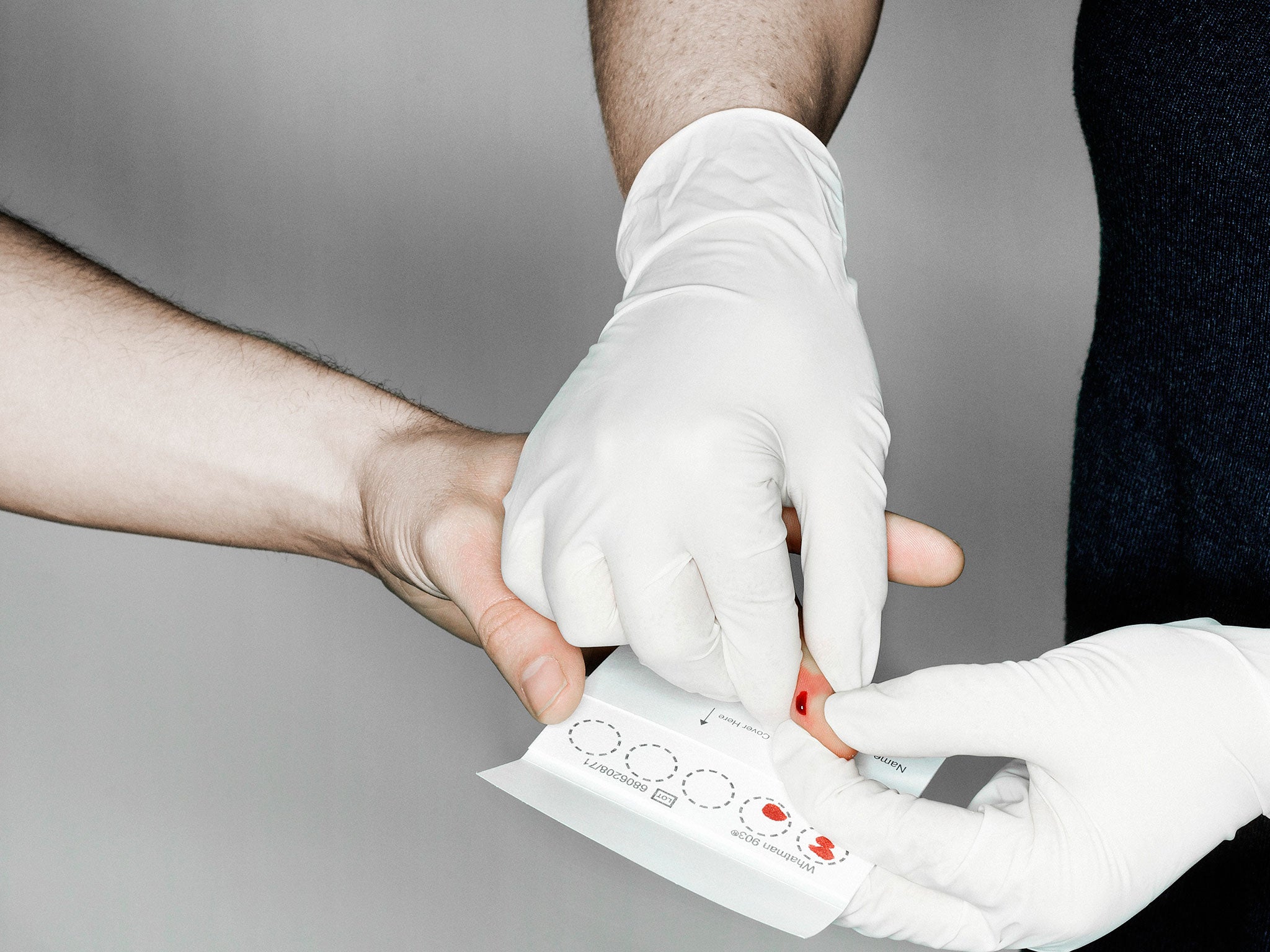Scientists develop test that can detect every known human virus in single drop of blood
Scientists say it can confirm present and past viral infections, even if they occurred many years ago

Your support helps us to tell the story
From reproductive rights to climate change to Big Tech, The Independent is on the ground when the story is developing. Whether it's investigating the financials of Elon Musk's pro-Trump PAC or producing our latest documentary, 'The A Word', which shines a light on the American women fighting for reproductive rights, we know how important it is to parse out the facts from the messaging.
At such a critical moment in US history, we need reporters on the ground. Your donation allows us to keep sending journalists to speak to both sides of the story.
The Independent is trusted by Americans across the entire political spectrum. And unlike many other quality news outlets, we choose not to lock Americans out of our reporting and analysis with paywalls. We believe quality journalism should be available to everyone, paid for by those who can afford it.
Your support makes all the difference.A simple test has been developed that can detect every known human virus in a single drop of blood. It can confirm present and past viral infections, even if they occurred many years ago, scientists said.
The test is based on the rapid and simultaneous detection of the hundreds of different antibodies that the human immune system makes when the body is invaded by viruses ranging from influenza and herpes to HIV and Ebola.
Scientists believe the test, called VirScan, can be performed on a single blood sample for about £16, which would radically improve the disease surveillance of large populations as well as being able to look back at the medical history of individual patients in terms of past viral infections.
“We’ve developed a screening methodology to basically look back in time in people’s [blood] sera and see what they have experienced,” said Stephen Elledge of Brigham and Women’s Hospital at the Harvard Medical School in Boston, who led the development team.

“Instead of testing for one individual virus at a time, which is labour intensive, we can assay all these at once. It’s one-stop shopping,” Dr Elledge said.
VirScan works by screening the blood for antibodies against any of the 206 species of virus that are known to infect humans. Many of these antibodies are produced years after an infection and are still circulating in the bloodstream even though the virus iself has been eradicated from the body.
This means that the test can detect not just the antibodies against a virus that the immune system is actively fighting, but those that are still being made decades after the initial infection. This would in effect provide an accurate history of an individual’s medical history, the scientists said.
Studies on blood samples of people known to be infected with HIV and Hepatitis C have shown that VirScan is accurate with low levels of false positives – when people are wrongly identified as having an infection – and false negatives, when they are inaccurately given a clean bill of health.
“It turns out that it works really well. We were in the sensitivity range of 95 to 100 per cent for those, and the specificity was good. We didn’t falsely identify people who were negative. That gave us confidence we could detect other viruses, and when we did see them we would know they were real,” Dr Elledge said.
Further tests, published in the journal Science, on the blood of 569 people living in four different countries showed that people on average had antibodies to about 10 different viruses, with people in South Africa, Peru and Thailand tending to have a wider range of viral antibodies to people living in the US.
The test uses a library of peptides – short fragments of protein – derived from viruses which can be used to recognise circulating viral antibodies in the blood. Unlike standard tests which recognise one virus at at time, VirScan does it simultaneously.
“What makes this so unique is the scale: right now, a physician needs to guess what virus might be at play and individually test for it. With VirScan, we can look for virtually all viruses, even rare ones, with a single test,” Dr Elledge said.
“A viral infection can leave behind an indellible footprint on the immune system. Having a simple, reproducible method like VirScan may help us to generate new hypotheses and understand the interplay between the virome [viral genome] and the host’s immune system, with implications for a variety of diseases,” he said.
Join our commenting forum
Join thought-provoking conversations, follow other Independent readers and see their replies
Comments